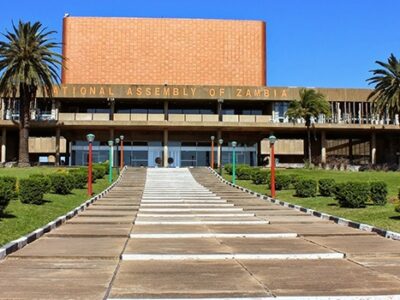In Zambia, technology has revolutionized how people connect, express themselves, and engage in national dialogue, creating new opportunities for communication and identity formation.
However, this digital evolution has also introduced challenges as the government seeks to balance national security with citizens’ rights to free speech and access to information.
Social media, in particular, has expanded communication horizons, allowing Zambians to share their thoughts and experiences beyond the confines of traditional media.
Read More: Zambia’s media freedom promises questioned amidst threats, intimidation, by Hannet Mwimbe
This has empowered individuals to shape public opinion and actively participate in national conversations.
The democratization of information has further enabled users to stay informed about local and global news, trends, and events, diversifying their sources of information.
Morgan Kaira, a journalism student, highlighted how technology has enabled people to disseminate information anytime and anywhere through social media.
“They can reach a wider audience by simply logging into their accounts. However, censorship is difficult because no one censors them,” he stated.
He noted that while free speech is easily shared by anyone, it becomes challenging to censor the information being circulated.
“The Cyber Bill is in place to help people stay in check with what they disseminate in the name of free speech,” he added.
The real-time nature of social media, while providing instant updates, also opens the door to misinformation and the spread of false news.
The rapid dissemination of unverified information can lead to confusion and panic, as seen in instances where rumors spread faster than the truth.
“Social media is the new voice of the voiceless,” said John Soko, a teacher at Nkungwa Primary School.
He noted that it allows citizens to speak out on issues that matter without waiting for traditional media coverage.
He pointed out that platforms like Instagram, TikTok, and YouTube have become hubs for creative expression, where users can showcase their talents in visual arts, music, and other forms of content.
These platforms not only provide a space for creativity but also allow individuals to build personal brands and even monetize their content.
In conclusion, the evolution of technology in Zambia has significantly transformed communication, identity formation, and public discourse.
Social media has empowered citizens to voice their opinions, share experiences, and access diverse information, bypassing the limitations of traditional media.
While it has democratized speech and provided creative outlets, it also poses challenges such as misinformation and censorship difficulties.
The government’s role in balancing free speech with national security remains crucial, particularly with the introduction of measures like the cyber bill.
Ultimately, social media has become a powerful tool, enabling both individual expression and collective influence on public opinion.
WARNING! All rights reserved. This material, and other digital content on this website, may not be reproduced, published, broadcast, rewritten or redistributed in whole or in part without prior express permission from ZAMBIA MONITOR.












Comments